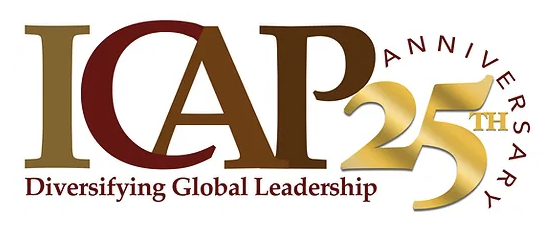ICAP Marks 25 Years of Success
Over 25 years ago, Dr. Tom Rowe saw something that disturbed him– the people getting promoted within the fields of public policy and international affairs were not very diverse. At the time, Rowe was the dean of the Korbel School, (then named the Graduate School of International Studies), and one of the responsibilities he had was to attend meetings of senior staff, associate deans, and deans, of other schools of international relations at the Association of Professional Schools of International Studies (APSIA).
“I felt that Korbel was producing dynamic, smart, and abled folks,” Rowe told me, “And sending them into careers where they were facing all kinds of obstacles.” These obstacles included the absence of mentors and role models that reflected similar backgrounds and demographics. This was compounded by the absence of support networks and continued discriminatory practices throughout the workplace. From this problem came an idea– what if there was a place to help overcome those obstacles that were less obvious? “If we had a mid-career program,” Tom reasoned, “We could move our folks up, and create the diverse leadership that we all said we wanted to see.” After returning to a faculty position after his deanship, he decided to forge a pathway that bridged the discrepancy dividing those who got promoted and those who did not, along demographic lines– this led to the foundation of the International Career Advancement Program, better known as ICAP, in 1997.
In the 25 years since its founding, ICAP has become a staple in the fields of international relations and public policy and has been recognized as an essential institution for encouraging people of diverse backgrounds to pursue positions of leadership in international affairs. Its mission is “to improve the quality of the leadership of the U.S. in international affairs by helping to ensure that it reflects the full diversity of the population”. To say that it’s achieved this is an understatement; since its founding, it has had more than 745 participants, all of whom are mid-career professionals. As it stands, 58% of its alumni now hold middle to senior-level positions in the government. Such alumni include Margaret Huang, the President and CEO of the Southern Poverty Law Center, Gina Abercrombie-Winstanley, previous ambassador to Malta who now serves as the State Department’s first Chief Diversity and Inclusion Officer, and 8 alumni who have moved on to become U.S. ambassadors.
But one might ask, what does it mean to be an ICAP fellow? How does ICAP help its fellows overcome the less obvious obstacles their careers might present? “One of the fundamental things ICAP is trying to accomplish,” Rowe says, “is a support group so once folks get out there, they will have others to whom they can turn for professional and personal assistance as they move forward in their careers”. The program runs for about a week at the Aspen Institute in Colorado and is complete with lectures, discussions, training, and team building. It’s a meticulous production, every detail is thought out in a way that encourages individuals to become part of a community, from the way the chairs are set up to who sits where, it’s all a part of Rowe’s vision for creating an environment that maximizes the potential for building and sustaining connections across sectors and demographics.
“The first night they’re there,” Rowe tells me, “We start with a dinner; then on the first day the fellows share their personal stories, including their heritage and the problems they’ve faced in their careers.” Rowe has psychologists lead discussions on how to cope with experiences that white people seldom face but are everyday occurrences for professionals from underrepresented communities. He also brings in professionals who give fellows career advice and help outline what policy issues might be important when moving forward in their careers. “But,” he says, “Most fundamentally, ICAP assists in giving the fellows a support group and a safe place.”
Along with this, ICAP offers a host of resources aimed at leadership training, career advising, policy analysis and implementation, networking, and career contacts, all essential for moving forward as a professional. The networking opportunity is large, especially with the quantity of ICAP alumni working throughout the public policy and international affairs profession. But connections are only helpful if they are sustained by the alumni themselves– something that doesn’t seem to be a problem for the ICAP alums. Every year, the ICAP alumni board holds a reunion in Washington, D.C. to maintain professional connections between different years and meet the newest members of the ICAP community. “The alumni also hold year-round events,” Rowe tells me, “They’re dedicated to bolstering those connections.”
The past 25 years of ICAP have been widely seen as a success, and its accomplishments and its mission have not gone unnoticed. Recently, a resolution in the U.S. House of Representatives was entered to recognize the importance and success of ICAP. It is considered to be one of the most vital parts of the diversity, equity, and inclusion efforts of the U.S. State Department, USAID, U.S. Peace Corps, and U.S. Foreign Agricultural Serve, and a multitude of others. The USAID and the U.S. Department of State both sponsor participants to attend ICAP, and the Council on Foreign Relations jointly sponsors the annual “Conference on Diversity in International Affairs” with ICAP.
What started over 25 years ago has grown into one of the most robust networks of mentorship and leadership for underrepresented communities in the U.S. ICAP’s legacy has not only brought awareness to the less obvious obstacles facing members of underrepresented communities, but its role as a resource for professional advancement and its methods for overcoming professional obstacles has made it an irreplaceable institution in the circles of public policy and international affairs.
This article was written by Korbel Graduate Student, David Kelm



